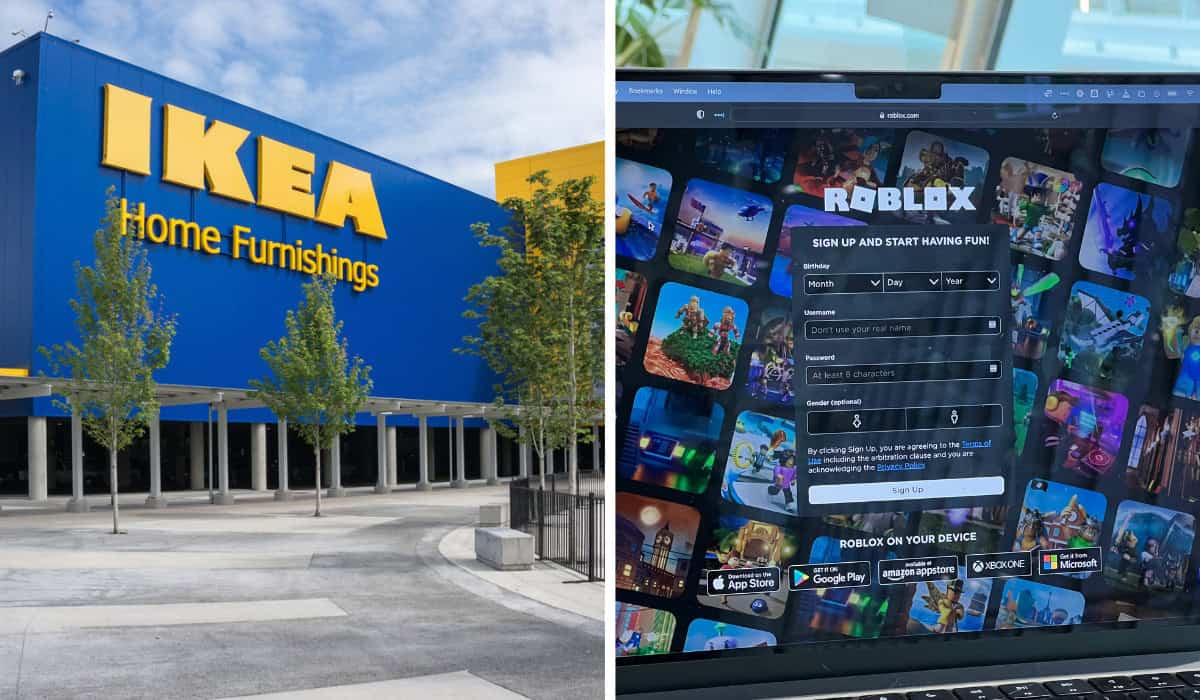
iStock.com/vkyryl | Photo by Oberon Copeland @veryinformed.com on Unsplash
Has IKEA Revolutionized the Retail Experience With Roblox?
In an innovative move that merges reality with the virtual gaming world, IKEA has announced that it will pay a limited number of Roblox players £13.15 or €14.80 per hour to work in its virtual store experience, called “The Co-Worker Game.” This unique in-game experience is set to launch on June 24, offering players a chance to engage with IKEA’s career philosophy in a digital environment.
The virtual store allows players to “live their home furnishing dreams,” and 10 of these players will actually be paid to work virtually within the game. Applications for these roles opened on June 3, 2024, and will be accepted until June 16. Applicants must be at least 18 years old and reside in the United Kingdom or Ireland. The application process includes a questionnaire, an updated CV, and an optional video submission. Selected candidates will undergo virtual interviews between June 14 and June 18. Successful applicants will be compensated with an hourly rate equivalent to that of a real-life IKEA co-worker.
The game offers an immersive experience where players can explore the IKEA virtual world, including visiting the Swedish Food Market and Bistro to serve IKEA’s famous dishes. Additionally, players can navigate various virtual showrooms to organize and interact with IKEA products. There will also be opportunities to win exclusive user-generated content (UGC).
This digital venture marks IKEA’s first attempt at integrating digital entertainment and adds a yet-to-be-fully explored prospect of incorporating paid work within a video game.
Darren Taylor, IKEA’s country people and culture manager, highlighted that this initiative showcases IKEA’s distinctive career philosophy, emphasizing flexibility and growth. “We’re excited to be the first brand to launch paid work on Roblox to showcase how we do careers differently, bringing our unique careers philosophy to life,” he said. “At IKEA, there is no set route to career progression. Our co-workers are able to change roles, switch departments, and grow in any direction they choose, both in the game or in the real world. There are many ways to learn and grow at IKEA, and that’s what IKEA on Roblox is all about.”
On the official Roblox Inspiration page, other brand collaborations are showcased. Paramount, the NHL, and H&M are among the organizations that have already made immersive Roblox experiences. Shipt also partnered with Roblox to create a racing adventure that played on back-to-school shopping.
Furthermore, over the past three years, Roblox has become a key platform for fashion brands targeting Gen Z and Gen Alpha. Brands like Gucci, Givenchy, and Tommy Hilfiger have created virtual worlds on Roblox, engaging with its over 70 million daily users. The Gang, a Stockholm-based gaming studio founded in 2019, has been instrumental in developing these brand experiences on Roblox. It has designed popular virtual worlds such as Gucci x Vans and Givenchy Beauty’s winter world. The Gang’s approach includes creating its own games to better understand the Roblox audience and applying these insights to brand projects.
Initially, The Gang faced challenges understanding the Roblox platform, but the studio adapted by closely collaborating with Roblox to refine its approach. Its efforts have paid off, making it a profitable and rapidly growing company. Notable projects include Vans World, which has attracted over 100 million visitors, and Gucci Town, featuring footballer Jack Grealish, which has had 45 million visits.
Roblox is increasingly seen not just for PR but as a platform for gamified, interactive brand experiences. Brands can test product designs with millions of users in virtual environments, gaining valuable insights. The Gang has also started exploring other platforms like Fortnite and plans to collaborate with Roblox’s user-generated content creators to develop branded digital garments.
Discussion Questions
What implications might IKEA’s integration of paid work within the Roblox gaming platform have for the future of remote employment and digital labor markets?
How can retail brands effectively leverage virtual platforms like Roblox to engage with younger demographics and create immersive brand experiences?
In what ways do collaborations between retail brands and gaming studios, such as IKEA’s partnership with Roblox, reflect broader shifts in consumer behavior and the convergence of digital entertainment with real-world commerce?
